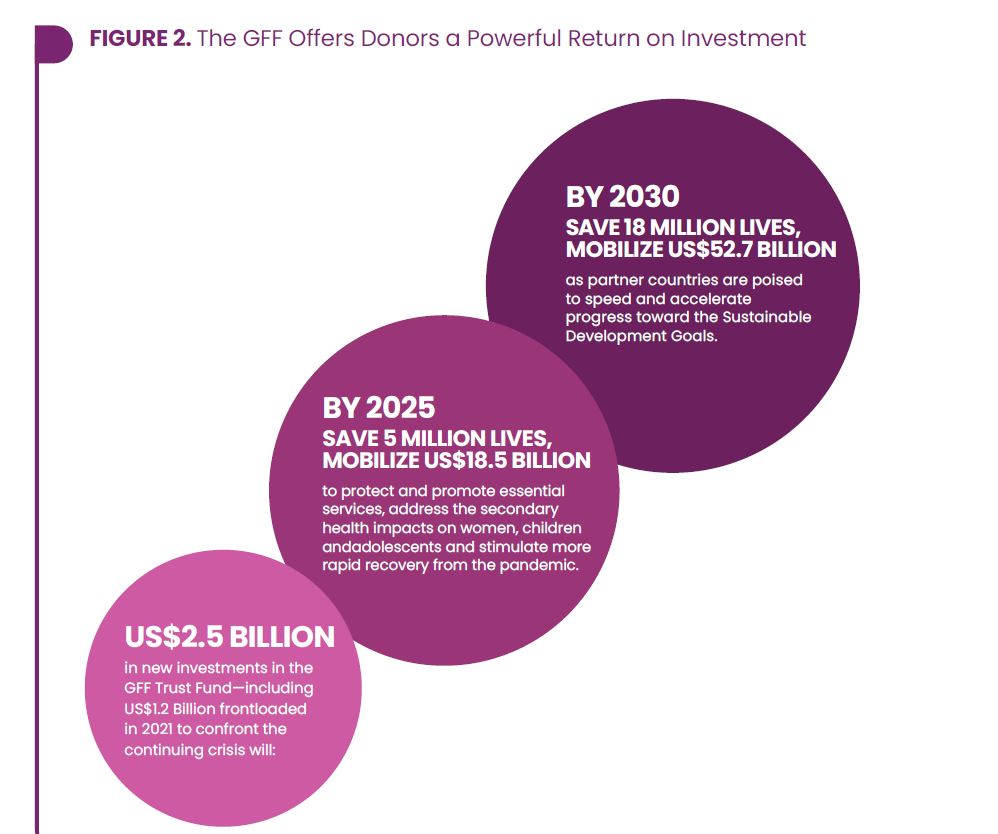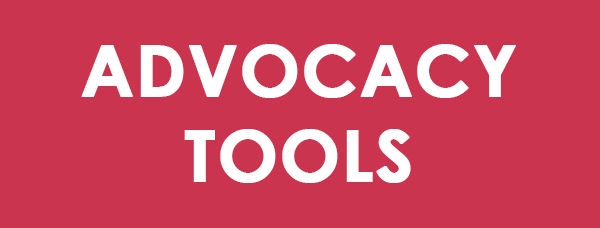Reclaim the Gains Campaign
Don’t let COVID-19 turn back progress on the health of women, children, and adolescents.
Download
Case for Investment
The impact of COVID-19 on essential health services in many of the world’s poorest countries threatens to turn back progress on the health of women, children and adolescents. The GFF has responded quickly to help limit the damage but more needs to be done to reclaim the gains. If we don’t increase investment now, lives will be lost and progress undone – hindering countries’ abilities to recover from this health and economic crisis.
THE PROBLEM
With disrupted health systems stretched to breaking point and economies severely impacted, women and children in the world’s poorest countries have been hit the hardest by this secondary crisis.
The pandemic has already disrupted contraceptive use for more than 5 million women and adolescents living in GFF partner countries.
Severe disruptions in essential health services in GFF partner countries have contributed up to a 25% drop in coverage of lifesaving health interventions since the pandemic struck.This is equivalent to:
- 17m children missing vaccinations
- 82 million children going without oral rehydration
- 4 million pregnant women unable to receive childbirth care
CASE FOR INVESTMENT
The GFF needs $1.2 billion by the end of 2021 to help countries maintain essential services for women, children and adolescents, strengthen health systems as they prepare for the rollout of the COVID-19 tools needed to end the pandemic, recover with greater resilience, and accelerate progress toward the SDGs.
A further US$1.3bn is needed to support the GFF’s work from 2023-2025. This will help meet country demand and enable the GFF to expand to a total of 50 of the world’s poorest countries.
What these investments will achieve
HOW THE GFF WORKS
The GFF is primed and ready to ensure that the world’s most vulnerable women, children and adolescents are not left behind by the crisis.
Launched in 2015 as a country-led, global partnership and housed at the World Bank, the GFF is squarely focused on supporting countries to prioritize and scale up evidence-driven investments to improve reproductive, maternal, newborn, child and adolescent health and nutrition in the world’s most vulnerable countries through targeted strengthening of service delivery systems—to save lives and as a critical step toward achieving Universal Health Coverage (UHC) and the Sustainable Development Goals (SDGs).
Read more about how the GFF works.
“Now is the time for all of us to double down on our shared commitment: To ensure the world is solidly on the path to realizing the goal that every woman, child, and adolescent ― everywhere ― can access the essential, quality, affordable health care they need to survive and thrive.” Muhammad Ali Pate, Director of the Global Financing Facility
“The urgency and need to ensure continuity of health services at all levels cannot be underscored. This must be a fully financed priority in order to reduce preventable deaths of women, children and adolescents. We can work with the GFF to ensure that this is the case.” Amos Mwale, Executive Director, Centre for Reproductive Health and Education, Zambia
“Working with the GFF shows what’s possible when young people’s voices are heard and they are given the opportunity to shape, implement and monitor the policies that will impact their families and communities.” Aminata Badiane Thioye, Advocate, Senegal
“It is one of the best experiences to provide birth registration services to citizens knowing that they won’t have to travel to the sector offices to register their newborns. A timely and easy service made possible with the new system is a big milestone.” Murebwayire Marie Grace, Civil Registrar, Rwanda
TAKE ACTION
- Encourage your government to support women, children and adolescent health as a core part of their COVID-19 response and recovery efforts
- Write to your Minister of International Development / Minister of Foreign Affairs / MP
- Share the campaign on social media
- Write an article, opinion piece or blog post
STORIES
Now is the time: Doubling down on commitments to gender equality
Laying the Foundation for Stronger Health Systems in Rwanda: Civil Registration and Vital Statistics

